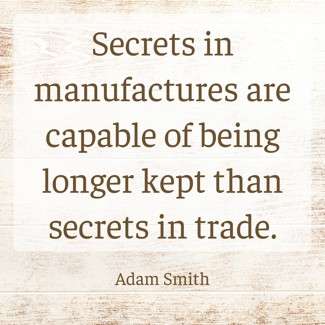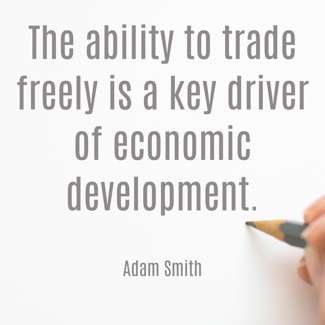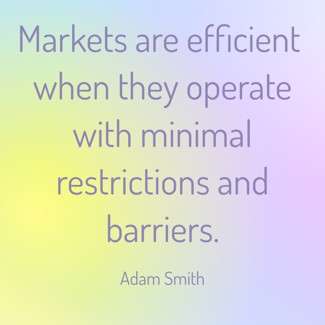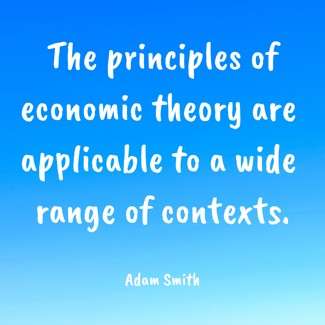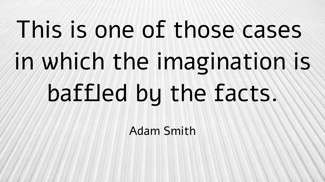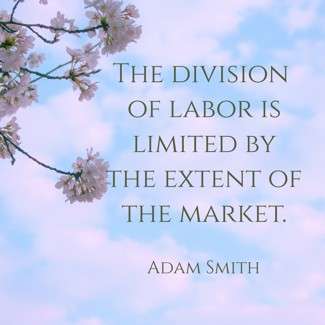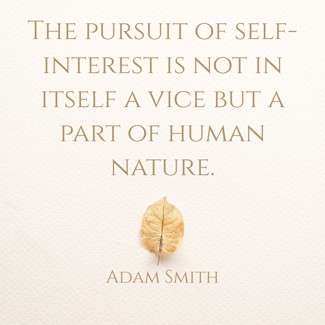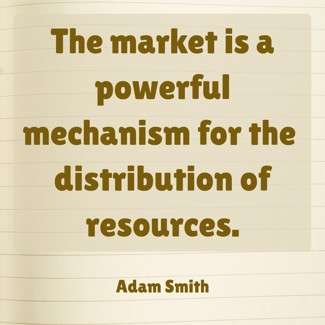Adam Smith
- Country : United Kingdom
- Profession :Scottish economist and philosopher
- DOB: 1723-06-05
Adam Smith (1723–1790) was a Scottish economist and philosopher, widely regarded as the father of modern economics. His seminal work, “An Inquiry into the Nature and Causes of the Wealth of Nations” (1776), laid the foundation for classical economics. Smith’s ideas about free markets, the division of labor, and the “invisible hand” of self-interest driving economic prosperity were revolutionary. Prior to his economic writings, he also published “The Theory of Moral Sentiments” (1759), exploring ethics and human behavior. Smith’s insights have had a lasting impact on economic theory and policy.
People of the same trade seldom meet together, even for merriment and diversion, but the conversation ends in a conspiracy against the public, or in some contrivance to raise prices.
Author: Adam SmithInvestment in education and skills development is crucial for economic advancement.
Author: Adam SmithThat the chance of gain is naturally over-valued, we may learn from the universal success of lotteries.
Author: Adam SmithI have never known much good done by those who affected to trade for the public good.
Author: Adam SmithMarkets are more efficient when participants have access to complete and accurate information.
Author: Adam SmithOn the road from the City of Skepticism, I had to pass through the Valley of Ambiguity.
Author: Adam SmithNo society can surely be flourishing and happy, of which the far greater part of the members are poor and miserable.
Author: Adam SmithThe study of economics involves understanding human behavior and decision-making.
Author: Adam SmithTo feel much for others and little for ourselves; to restrain our selfishness and exercise our benevolent affections, constitute the perfection of human nature.
Author: Adam SmithSugar, rum and tobacco are commodities which are nowhere necessaries of life, which are become objects of almost universal consumption, and which are therefore extremely proper subjects of taxation.
Author: Adam SmithMarkets are best equipped to allocate resources when they are free from excessive regulation.
Author: Adam SmithEconomic theories should be grounded in practical experience and empirical evidence.
Author: Adam Smith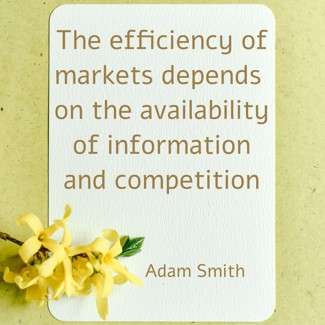
The efficiency of markets depends on the availability of information and competition
Author: Adam SmithEconomic policies should be aimed at promoting long-term prosperity and stability.
Author: Adam SmithAdventure upon all the tickets in the lottery, and you lose for certain; and the greater the number of your tickets the nearer your approach to this certainty.
Author: Adam Smith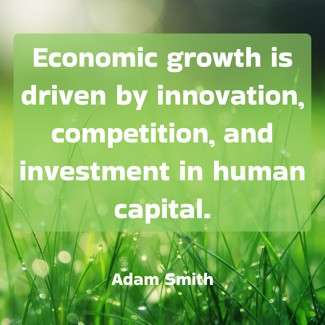
Economic growth is driven by innovation, competition, and investment in human capital.
Author: Adam SmithIt is not by augmenting the capital of the country, but by rendering a greater part of that capital active and productive than would otherwise be so, that the most judicious operations of banking can increase the industry of the country.
Author: Adam SmithThe government should only intervene in the economy to correct market failures and ensure justice.
Author: Adam SmithNobody but a beggar chooses to depend chiefly upon the benevolence of his fellow-citizens.
Author: Adam SmithA fair competition is the best way to encourage innovation and improve standards.
Author: Adam SmithGreat ambition, the desire of real superiority, of leading and directing, seems to be altogether peculiar to man, and speech is the great instrument of ambition.
Author: Adam SmithThe problem with fiat money is that it rewards the minority that can handle money, but fools the generation that has worked and saved money.
Author: Adam SmithThe prosperity of a nation depends on the productivity of its labor and the efficiency of its institutions.
Author: Adam SmithA free market is the best mechanism for allocating resources and fostering innovation.
Author: Adam SmithResentment seems to have been given us by nature for a defense, and for a defense only! It is the safeguard of justice and the security of innocence.
Author: Adam Smith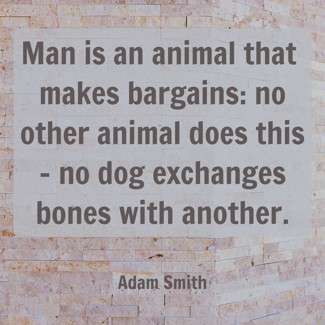
Man is an animal that makes bargains: no other animal does this – no dog exchanges bones with another.
Author: Adam SmithThe true measure of a nation’s wealth is its ability to provide for the well-being of its citizens.
Author: Adam SmithThe state should never interfere with the market process unless absolutely necessary.
Author: Adam SmithLittle else is requisite to carry a state to the highest degree of opulence from the lowest barbarism but peace, easy taxes, and a tolerable administration of justice: all the rest being brought about by the natural course of things.
Author: Adam SmithLabor was the first price, the original purchase – money that was paid for all things.
Author: Adam SmithIn the long run, it is not the entrepreneur who gains the most from the free market, but the society as a whole.
Author: Adam SmithVirtue is more to be feared than vice, because its excesses are not subject to the regulation of conscience.
Author: Adam Smith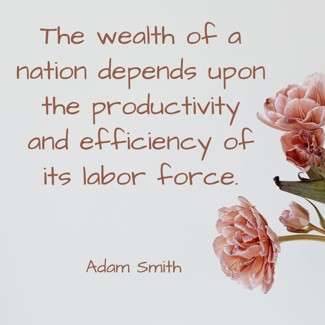
The wealth of a nation depends upon the productivity and efficiency of its labor force.
Author: Adam SmithWith the greater part of rich people, the chief enjoyment of riches consists in the parade of riches.
Author: Adam SmithSelf-interest, though it may often be a motive of action, is not the only motive that guides human behavior.
Author: Adam SmithThe desire for wealth and the pursuit of self-interest can often lead to beneficial outcomes for society.
Author: Adam SmithHe is led by an invisible hand to promote an end which was no part of his intention.
Author: Adam SmithThe real price of everything, what everything really costs to the man who wants to acquire it, is the toil and trouble of acquiring it.
Author: Adam SmithWhat can be added to the happiness of a man who is in health, out of debt, and has a clear conscience?
Author: Adam Smith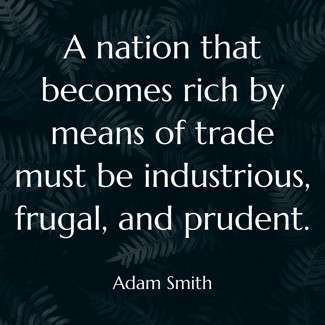
A nation that becomes rich by means of trade must be industrious, frugal, and prudent.
Author: Adam SmithAs soon as the land of any country has all become private property, the landlords, like all other men, love to reap where they never sowed, and demand a rent even for its natural produce.
Author: Adam Smith
